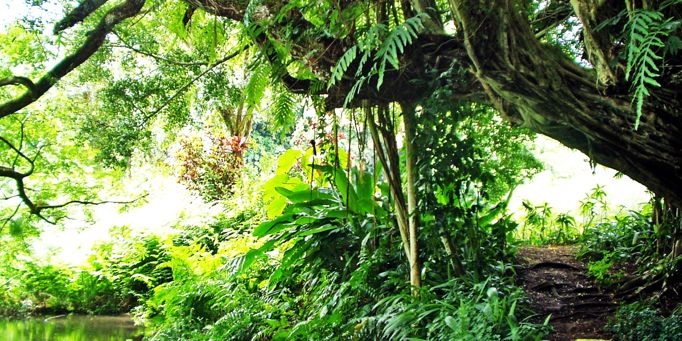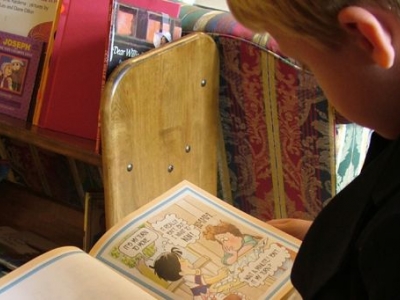
The Hobbit, wealth, and faraway places
Teaching through Genesis, Andy Stirrup notices something is missing from the land of Eden.
We’re not in Havilah any more
I’m looking forward to watching the first film instalment of The Hobbit with my family. We are anticipating it will be fairly true to the book, which describes a journey to a far away place, and back home again.
I'm particularly interested, as I have been looking at 'far away places' as I teach through Genesis 1-11 at Youthworks College. It has got me thinking about the rich theological vein offered to those who are prepared to dig there. I believe in particular, there is some treasure to be found for those looking for guidance on setting priorities in our family life.
As I reflect on these foundational chapters of the Bible, I can’t help noticing the mention of the city of Havilah, "where there is gold" (Genesis 2:11). But in noticing that, I am forced to recognise that there is no mention of gold in Eden. On one level you might think “So what?”. But I would have to say that this is weird.
Dilmun is another city mentioned in Ancient Near Eastern texts (Enki and Ninhursag) that is sometimes linked with Eden. It is also ‘far away’ and across the mountains, over a pass guarded by scorpion-men. It’s about as far away as you can get. Dilmun was where people enjoyed life to the max. It was a rich trading port, centre of a very lucrative copper and lapis lazuli trade.
But, just like Havilah, there was lots of gold in Dilmun. And yet, apparantly there was none in Eden. None to speak of anyway.
We could pass this off as an anomaly, but the same anomaly returns in an ancient flood narrative. When Utanapishtim went into his boat to escape the great flood, he took all his silver and all his gold. They are the first things that he mentions when he lists what went into the boat with him (Gilgamesh Epic 11. 81-82). But Noah didn’t. Well, if he did, it was not felt to be worth mentioning.
No gold in Eden. No gold on the ark. Why?
Whatever else Genesis 1-11 is doing, it offers us values and principles that are to be foundational in our lives, and in the life of the faith community of which we are a part. And if the gold is in Havilah, and not in Eden, or on the ark, then perhaps gold (or wealth) was never meant to be as central to our lives and choices, as we sometimes find it is.
It’s hard for me to think how it cannot be, because I am so caught up by its allure. But I am wondering if there are other things that are more essential and more integral to the human experience and family life than the accumulation and display of wealth. If Eden stands out for not having gold, then it also stands out for having relationships. Uncluttered, unfettered relationships - both the man and his wife were naked, yet felt no shame (2:25). With that comes community: This one, at last, is bone of my bone, and flesh of my flesh (2:23).
This all brings me back to The Hobbit, and it's main character Bilbo Baggins. As a result of the Hobbit's journey, the Bilbo who returns to Hobbiton is very different from the one who set out. There is a point in the story where Bilbo has an opportunity to secure for himself more wealth than anyone in the Shire had ever dreamt of. But he chooses not to make the accumulation and display of wealth the goal that governs his choices.
By the time that he gets back to Bag End, we realise he has been transformed by his experiences. He may still be small, a halfling (though that is not how hobbits prefer to identify themselves), but he has grown in stature and in character. He is bigger. He engages more deeply with those around him and he has a deeper appreciation for home and for community.
I hope this movie will be an enjoyable way to open a discussion about what our family's priorities should be.
Andy Stirrup teaches children’s ministry and family ministry at Youthworks College.
For more articles from Growing Faith, subscribe to our monthly e-newsletter.
To hear about the latest books and resources from Youthworks Media, subscribe here.







